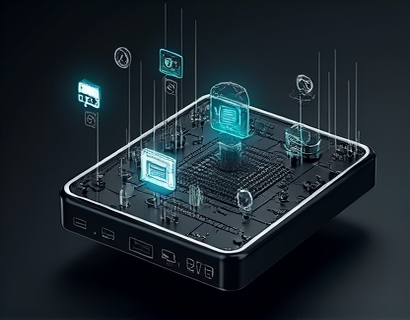Instant Expert Healthcare Insights: Empowering Personalized Medical Support with Advanced AI Technology
In today's fast-paced world, the need for personalized healthcare solutions has never been more critical. With the rapid advancement of technology, particularly artificial intelligence (AI), individuals now have access to instant medical insights and expert advice at their fingertips. This article explores how AI-driven platforms are transforming healthcare by providing personalized medical support, empowering individuals to make informed decisions about their health and well-being.
The Rise of Healthtech
Healthtech, or healthcare technology, encompasses a wide range of tools and services designed to improve the efficiency and effectiveness of healthcare delivery. From telemedicine to wearable devices, healthtech innovations are reshaping how patients interact with healthcare providers and manage their health. One of the most significant advancements in this field is the integration of AI technology, which has the potential to revolutionize personalized medical support.
Understanding AI in Healthcare
Artificial intelligence refers to the simulation of human intelligence in machines programmed to think and learn. In healthcare, AI can analyze vast amounts of data, identify patterns, and provide insights that can lead to better patient outcomes. By leveraging AI, healthcare providers can offer personalized recommendations based on an individual's unique health profile, preferences, and needs.
Benefits of AI-Driven Healthcare Insights
- Instant Access to Information: AI platforms can provide users with immediate access to medical information, allowing them to make informed decisions quickly.
- Personalized Recommendations: By analyzing individual health data, AI can offer tailored advice that considers a person's medical history, lifestyle, and preferences.
- Enhanced Decision-Making: With expert insights readily available, individuals can make better health choices, leading to improved outcomes.
- Timely Support: AI technology can monitor health conditions in real-time, alerting users to potential issues before they become serious.
Empowering Individuals with Personalized Medical Support
One of the primary goals of AI-driven healthcare platforms is to empower individuals to take control of their health. By providing personalized medical insights, these platforms enable users to understand their health better and make informed decisions. This empowerment is particularly crucial in a world where healthcare can often feel overwhelming and complex.
How AI Platforms Deliver Personalized Insights
AI platforms utilize various data sources, including electronic health records, wearable devices, and user inputs, to create a comprehensive health profile for each individual. This profile serves as the foundation for personalized recommendations and insights. For example, if a user inputs their symptoms, the AI can analyze this information alongside their medical history to suggest possible conditions and appropriate next steps.
Case Studies: Real-World Applications of AI in Healthcare
Several organizations have successfully implemented AI technology to enhance personalized medical support. For instance, AI algorithms can analyze imaging data to detect diseases such as cancer at earlier stages, significantly improving treatment outcomes. Additionally, AI chatbots are being used to triage patients, providing them with immediate advice and directing them to the appropriate level of care.
The Role of Data Privacy and Security
As with any technology that handles sensitive information, data privacy and security are paramount in AI-driven healthcare platforms. Users must feel confident that their personal health data is protected. Reputable platforms implement robust security measures, including encryption and secure data storage, to safeguard user information. Transparency about data usage and privacy policies is also essential to build trust with users.
Challenges and Limitations of AI in Healthcare
While the potential of AI in healthcare is vast, there are challenges and limitations that must be addressed. One significant concern is the accuracy of AI algorithms. If the data used to train these algorithms is biased or incomplete, it can lead to incorrect recommendations. Additionally, the integration of AI into existing healthcare systems can be complex, requiring significant investment and training.
Future Trends in AI-Driven Healthcare
The future of AI in healthcare looks promising, with several trends emerging that could further enhance personalized medical support. One trend is the increasing use of predictive analytics, which can forecast health issues before they arise, allowing for proactive interventions. Another trend is the integration of AI with telehealth services, enabling remote monitoring and consultations that provide personalized care without the need for in-person visits.
Conclusion
AI-driven platforms are transforming the healthcare landscape by providing instant personalized medical insights and expert advice. By empowering individuals to make informed health decisions, these technologies enhance well-being and improve patient outcomes. As healthtech continues to evolve, the integration of AI will play a crucial role in shaping the future of personalized medical support, ensuring that individuals have the tools they need to manage their health effectively.










































